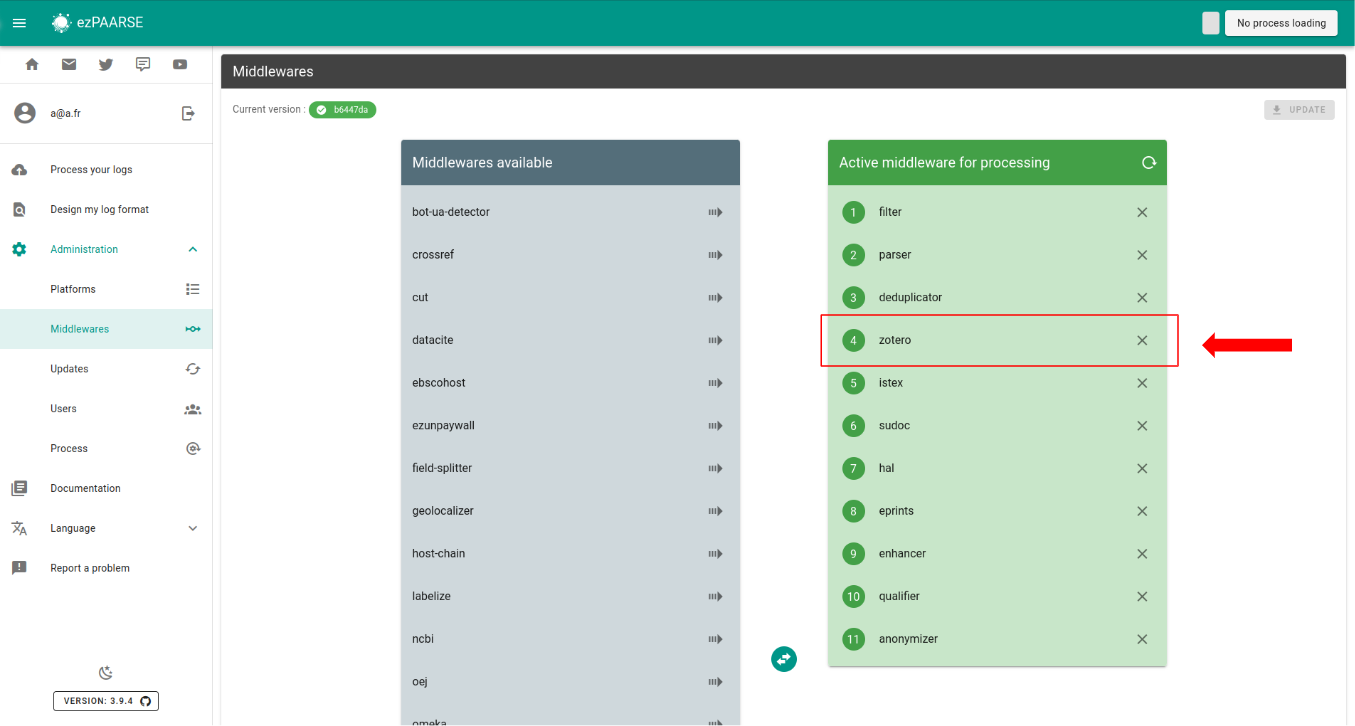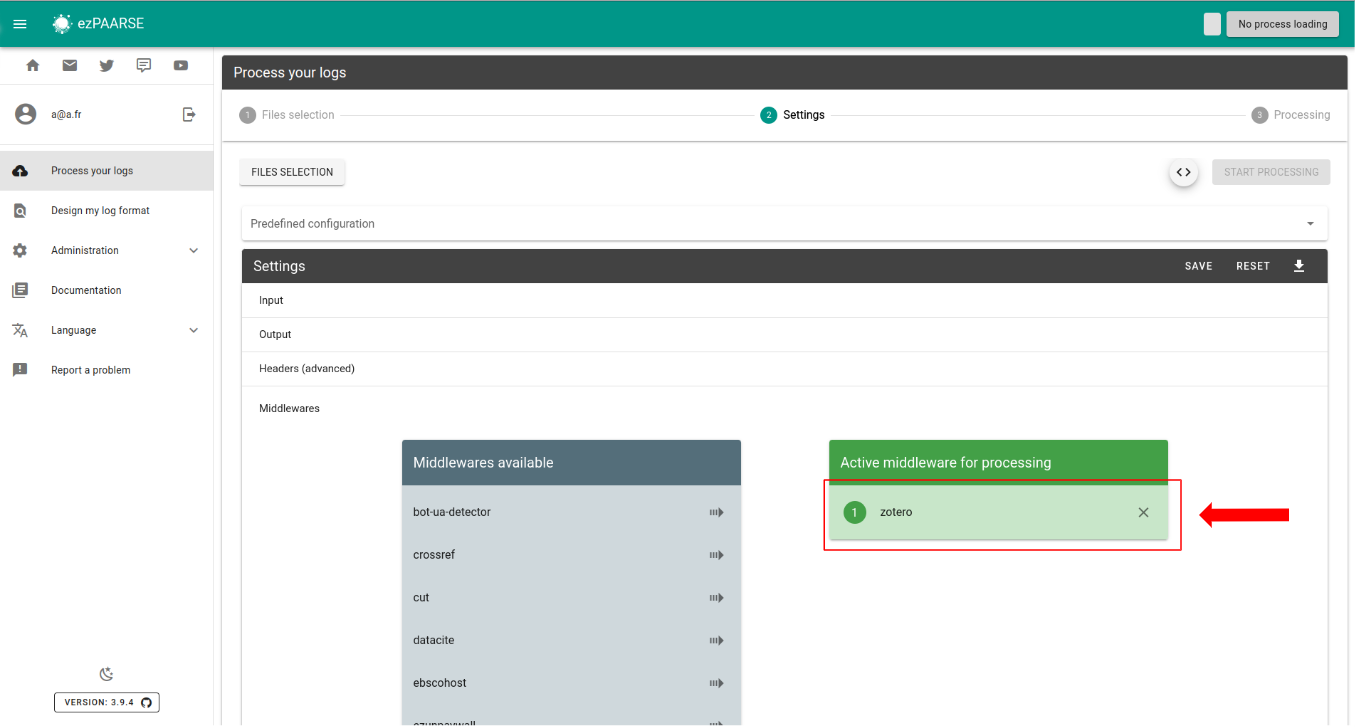# zotero
Enriches consultation events with [zotero]
# Enriched fields
| Name | Type | Description |
|---|---|---|
| zotero_doi | String | DOI of publication. |
| zotero_issn | String | Print identifier of publication. |
| zotero_title | String | Title of pulication. |
# Headers
- zotero-enrich : Set to
falseto disable zotero enrichment. Enabled by default. - zotero-cache : Enable/Disable cache.
- zotero-license : Set to
trueto get thelicensefield as JSON. Disabled by default. - zotero-ttl : Lifetime of cached documents, in seconds. Defaults to
7 days (3600 * 24 * 7). - zotero-throttle : Minimum time to wait between queries, in milliseconds. Defaults to
200ms. - zotero-paquet-size : Maximum number of identifiers to send for query in a single request. Defaults to
50. - zotero-buffer-size : Maximum number of memorized access events before sending a request. Defaults to
1000. - zotero-max-attempts : Maximum number of trials before passing the EC in error. Defaults to
5.
# Prerequisites
You must use zotero after filter, parser, deduplicator middleware.
# How to use
# ezPAARSE admin interface
You can add or remove zotero by default to all your enrichments. To do this, go to the middleware section of administration.

# ezPAARSE process interface
You can use zotero for an enrichment process.

# ezp
You can use zotero for an enrichment process with ezp (opens new window) like this:
# enrich with one file
ezp process <path of your file> \
--host <host of your ezPAARSE instance> \
--settings <settings-id> \
--header "ezPAARSE-Middlewares: zotero" \
--out ./result.csv
# enrich with multiples files
ezp bulk <path of your directory> \
--host <host of your ezPAARSE instance> \
--settings <settings-id> \
--header "ezPAARSE-Middlewares: zotero"
# curl
You can use zotero for an enrichment process with curl like this:
curl -X POST -v http://localhost:59599 \
-H "ezPAARSE-Middlewares: zotero" \
-H "Log-Format-Ezproxy: <line format>" \
-F "file=@<log file path>"